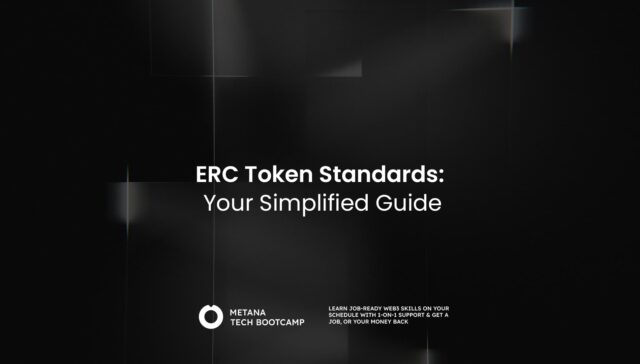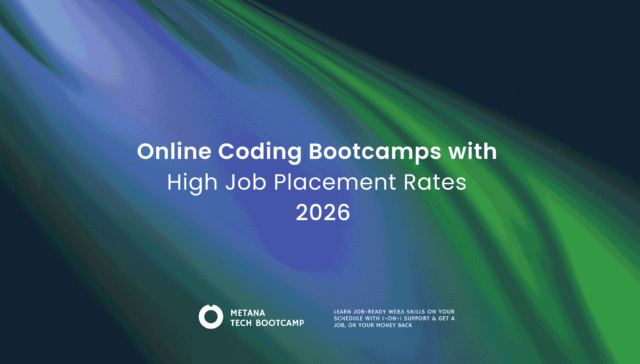TL;DR
Worth learning if you’re: A systems programmer, backend developer, or working on performance-critical code.
Key benefits:
- 15-20% salary premium
- Major industry adoption (Microsoft, Amazon, Google)
- Memory safety without garbage collection
Not ideal for: Complete beginners or quick projects with tight deadlines.
Learning curve: 5-6 months to proficiency, steepest in first 1-2 months.
In the ever-evolving landscape of programming languages, Rust continues to stand out as a unique and powerful option for developers in 2025. If you’re wondering “should I learn Rust in 2025?” you’re asking an excellent question that deserves a thoughtful answer. This article will break down everything you need to know about Rust, its current standing in the industry, and whether it’s worth your valuable learning time this year.
What Is Rust and Why Is It Special?
Rust is a systems programming language that focuses on safety, speed, and concurrency. First introduced by Mozilla in 2010 and reaching version 1.0 in 2015, Rust has steadily grown in popularity and respect among developers. Now in 2025, Rust has matured significantly, with a robust ecosystem and widespread industry adoption.
What makes Rust special compared to other languages? First and foremost is its ability to guarantee memory safety without relying on a garbage collector. This is achieved through Rust’s ownership system, which enforces strict rules at compile time. The compiler acts like a strict but helpful teacher, ensuring that your code won’t suffer from common bugs like null pointer dereferencing, buffer overflows, or data races—issues that plague languages like C and C++.
As a systems language, Rust offers performance comparable to C and C++, making it suitable for performance-critical applications like game engines, operating systems, and embedded systems. In 2025, with computing resources at a premium for resource-intensive applications like AI, Rust’s efficiency is more valuable than ever.
Despite being a systems language, Rust includes modern features that make development more pleasant. These include pattern matching, type inference, zero-cost abstractions, functional programming features, and a powerful macro system. The Rust ecosystem has expanded significantly as well. Cargo, Rust’s package manager, now hosts over 100,000 packages (or “crates”) in 2025, covering everything from web frameworks to machine learning libraries.

Rust’s Position in the 2025 Tech Landscape
Since its inception, Rust has been steadily gaining adoption in major tech companies. Microsoft continues to implement Rust in Windows and Azure components, Amazon uses Rust for performance-critical aspects of AWS, Google incorporates Rust in various projects including parts of Android, and Meta (formerly Facebook) uses Rust in its infrastructure. Companies like Dropbox, Discord, and Cloudflare have migrated portions of their infrastructure to Rust. By 2025, this list has grown substantially, with Rust becoming a standard choice for new systems programming projects in enterprises of all sizes.
The job market for Rust developers has seen significant growth as well. According to developer surveys and job market analytics from 2024-2025, Rust developers command salary premiums of 15-20% over comparable roles in other languages. Job postings for Rust skills have increased by approximately 35% year-over-year, and many companies are willing to hire promising developers with less Rust experience and invest in their training.
The Rust community has always been known for its welcoming and helpful nature. In 2025, this community continues to thrive with active forums, Discord channels, and local meetups worldwide. Regular conferences both virtual and in-person, extensive documentation and learning resources, and the expanded initiatives of the Rust Foundation all contribute to the sustainable development of the language.
Learning Curve: Is Rust Difficult for Beginners?
Rust has a reputation for being challenging to learn, especially for beginners. This reputation is not entirely undeserved—Rust introduces concepts that may be unfamiliar even to experienced programmers from other languages.
The most notorious challenge in learning Rust is understanding its ownership system and the “borrow checker.” This system enforces rules about how memory is accessed and shared between different parts of your program. While initially frustrating, most developers report an “aha moment” where these concepts click, and they begin writing safer code not just in Rust but in other languages as well.
The good news is that learning Rust has become significantly more accessible. Error messages continue to improve, with clearer explanations and suggested fixes. The Rust compiler now offers more beginner-friendly diagnostics, and learning resources have expanded dramatically with courses specifically designed for different backgrounds. New tools and IDEs provide better support for beginners, and the Rust Book (the official documentation) has been updated with more examples and clearer explanations.
If you’re considering learning Rust in 2025, here’s a realistic timeline of what to expect:
- Weeks 1-2: Getting comfortable with basic syntax, control flow, and writing simple programs
- Weeks 3-4: Wrestling with the borrow checker and ownership concepts
- Month 2: Beginning to understand Rust’s memory model
- Months 3-4: Growing comfortable with Rust idioms and patterns
- Months 5-6: Becoming capable of productive development in most contexts
This timeline varies greatly depending on your background and the time you can dedicate to learning. Developers coming from C++ often grasp Rust’s memory model faster, while those from garbage-collected languages like JavaScript or Python might need more time to adjust to managing memory explicitly.
What Can You Build with Rust?
Rust’s versatility has expanded substantially, making it suitable for a wide range of applications. In its original domain of systems programming, Rust remains one of the strongest options for developing operating system components, device drivers, embedded systems, IoT devices, and real-time systems.
The web development ecosystem in Rust has matured significantly as well. Backend frameworks like Actix, Rocket, and Axum have reached enterprise-ready status, and WebAssembly support continues to be excellent, allowing Rust to run in browsers. Full-stack frameworks have emerged, offering integrated solutions for web developers.

Rust has become a go-to language for cloud infrastructure, enabling the development of containerization tools, orchestration systems, microservices, and serverless functions. The game development ecosystem has grown substantially too, with multiple mature game engines written in Rust, bindings to popular engines like Unity and Unreal, and growing adoption in AAA studios for performance-critical components.
While Python remains dominant in machine learning and AI, Rust has carved out a niche for high-performance ML inference engines, integration with GPU computing, and data processing pipelines where speed matters. Frameworks like Tauri have made Rust an excellent choice for building lightweight, secure desktop applications that work across platforms.
Should YOU Learn Rust in 2025?
Rust may not be the best first language for complete beginners due to its complex concepts like ownership and borrowing. Beginners should consider starting with Python, JavaScript, or Go. For web developers, Rust is useful for backend performance, WebAssembly, and secure web services. Systems programmers and C/C++ developers should consider Rust for its safety improvements.
Data scientists and ML engineers can explore Rust for performance-critical deployments but don’t need it yet. Game developers may find it useful for performance-critical components, though C++ is still dominant. For students and researchers, Rust is a valuable skill, teaching memory management and useful in systems programming and security.
The Practical Path to Learning Rust
If you’ve decided to learn Rust, starting with a clear understanding of why you’re learning it will help determine how deep you need to go and which resources will be most helpful. Whether you’re learning for career opportunities, to build specific types of applications, to understand systems programming concepts, or to complement your existing skills, your motivation will guide your learning journey.
In 2025, excellent resources for learning Rust include:
- The Rust Book (officially titled “The Rust Programming Language”) – Still the best comprehensive introduction
- Rust By Example – Learn through practical code examples
- Rustlings – Small exercises to get you used to reading and writing Rust code
- Interactive courses on platforms like Educative, Udemy, and Coursera
- YouTube channels dedicated to Rust tutorials
- Rust Playground – An online environment to experiment with Rust code without installation

Setting up your development environment has become easier with improved tooling. You can install Rust via rustup, which manages the compiler and related tools. Choose an IDE or text editor with strong Rust support, such as VS Code with rust-analyzer, IntelliJ with the Rust plugin, or Neovim with rust tools. Take some time to familiarize yourself with Cargo, Rust’s package manager and build tool.
Starting with small projects that align with your interests is a good way to build momentum. Consider building CLI tools for automation, simple games like Tetris or Snake, web servers or API clients, or data processing utilities. As you progress, joining the Rust community through the official Rust forum, Discord or Reddit community, virtual or local Rust meetups, or following Rust developers on social media platforms can provide support and inspiration.
Once you’re comfortable with the basics, challenge yourself with a more substantial project, like a small web application, a game or simulation, a systems tool that solves a real problem you have, or contributing to open-source Rust projects.
Common Challenges and How to Overcome Them
When you inevitably run into issues with Rust’s borrow checker, take a step back and think about the ownership of each value. Consider restructuring your code to avoid complex borrowing patterns, use tools like Clippy to suggest improvements, and don’t hesitate to ask for help in Rust forums. The community is known for being exceptionally helpful to newcomers.
Some design patterns from other languages don’t translate well to Rust. Learning Rust-specific patterns like the newtype pattern and typestate pattern, studying how popular Rust libraries structure their code, and being willing to rethink solutions in a “Rusty” way can help overcome these challenges.
While Rust’s ecosystem has grown tremendously, you might still encounter areas where libraries aren’t as mature as in languages like JavaScript or Python. Looking for alternative approaches that play to Rust’s strengths, considering contributing to existing libraries, and being prepared to write some functionality yourself are all strategies for dealing with ecosystem gaps.
Conclusion: Is Rust Worth Learning?
Taking everything into account, Rust offers a compelling case for developers looking to expand their skills in 2025. The strong job market with competitive salaries, growing industry adoption across various sectors, improved learning resources making the language more accessible, expanding ecosystem covering more use cases, and future-proof skills that will likely remain valuable all make Rust an attractive option.
The question “should I learn Rust in 2025?” ultimately depends on your specific goals and background. For many developers—especially those in systems programming, performance-critical web services, or security-sensitive domains—the answer is increasingly “yes.”
Even if you don’t end up using Rust professionally, the concepts it teaches about memory management, ownership, and safe concurrent programming will make you a better programmer overall. The learning curve is real, but so are the rewards. With dedication and the right resources, Rust can become a powerful addition to your programming toolkit in 2025. The growing community, extensive resources, and exciting possibilities await those ready to embark on their Rust journey.
FAQs
What is Rust and why is it popular?
- Rust is a systems programming language known for its memory safety features, speed, and efficiency, making it a top choice for modern software development.
Is Rust a good language for beginners?
- Yes! Although it has a steeper learning curve than some languages, Rust’s clear documentation and strong community support make it beginner-friendly for those committed to learning.
What are the advantages of learning Rust in 2025?
- Rust is increasingly used in web development, blockchain projects, and embedded systems. Its focus on performance and safety makes it highly relevant for the future.
How can I start learning Rust as a beginner?
- Start with resources like the official Rust Book, online tutorials, and interactive coding platforms. Hands-on practice with small projects is key to mastering Rust.
Is Rust in high demand for developers?
- Yes, Rust’s demand is growing, especially for roles in systems programming, blockchain development, and performance-critical applications.







